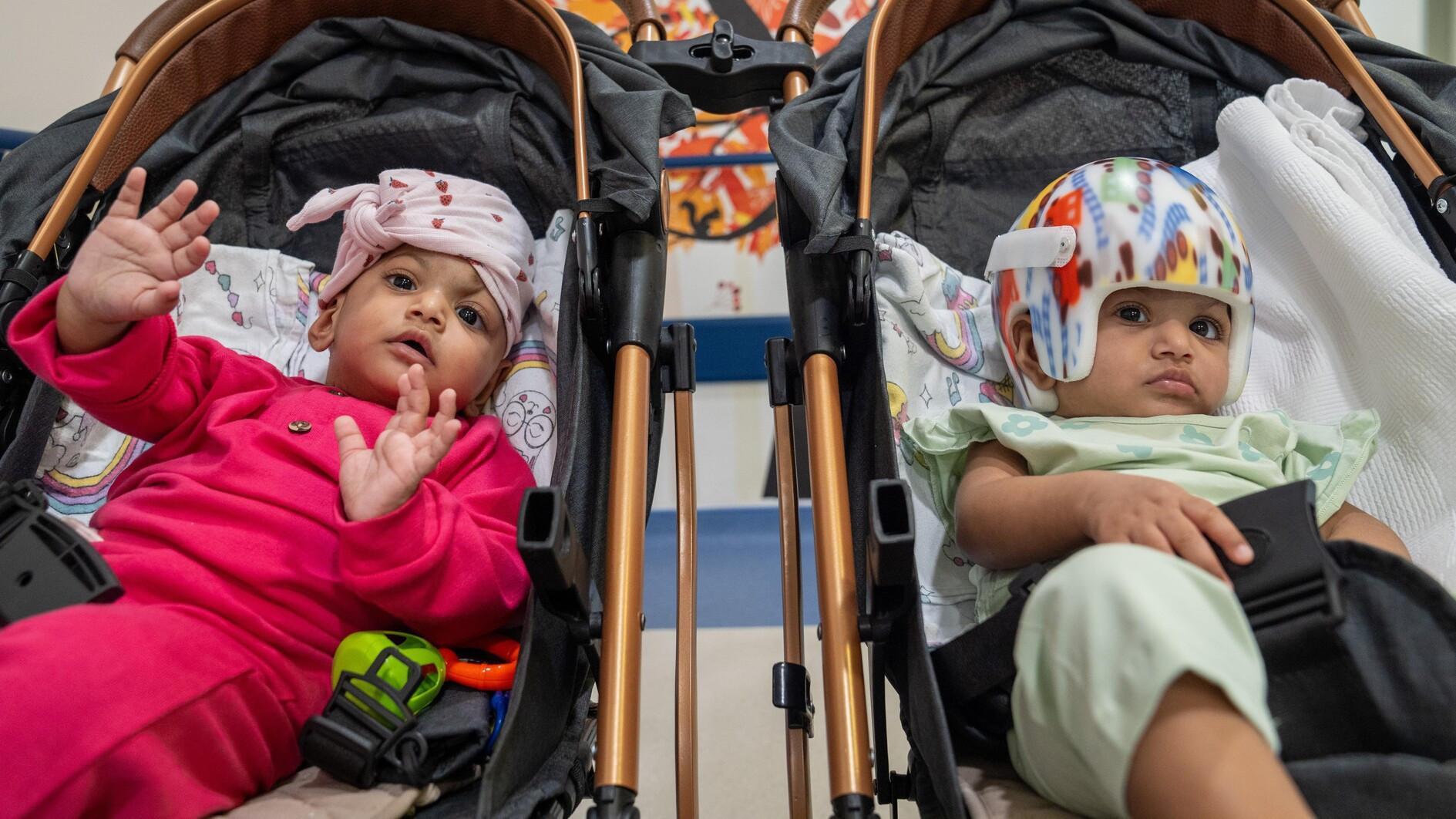
A team of 60 medical professionals has successfully separated 8-month-old conjoined twins from Pakistan after two-stage operations lasting about 14 hours in Ankara.
The twin girls, Mirha and Minal, were born in Pakistan in September 2023 with their heads fused together. Facing challenges in accessing the necessary medical care in their home country, their family's heartfelt plea for assistance reached President Recep Tayyip Erdoğan.
Erdoğan took action to facilitate the transfer of the babies to Türkiye, after being contacted by Professor Dr. Noor Ul Owase Jeelani, a prominent pediatric neurosurgeon based in London.
The complex operations, led by Jeelani and two other Turkish physicians, were highly successful, enabling the twin babies to celebrate their first birthdays side by side, but as individuals.
Associate Professor Hasan Murat Ergani, one of the two Turkish physicians involved, said that the procedures were both exciting and rewarding for the medical team and that extensive medical planning was conducted in preparation for the operations.
“In order to prevent tissue deficiency after the separation, we first performed balloon tissue expansion surgery. We placed a material in their heads that gradually expanded, increasing the tissue over about two months,” Ergani said, providing detailed information on the process.
Echoing Ergani’s sentiments, Associate Professor Harun Demirci, the other one of the two physicians leading the operations, shed light on the aftermath of the operations.
“After the procedure, our babies initially had a hard time adjusting to being apart. They did not feel good being apart, so we had to place them in the same room at first, even in the intensive care unit,” he noted.
This was due to the fact that the babies desired the contingence they previously had, according to Demirci, who noted that, however, the babies adapted to the new circumstances over time.
“Their state of health is excellent. In two to three weeks, we are planning to discharge them,” he pointed out. “They will have checkups after three months, and we will monitor the growth of their bones and brain tissues for a while. We're hoping that everything works well.”